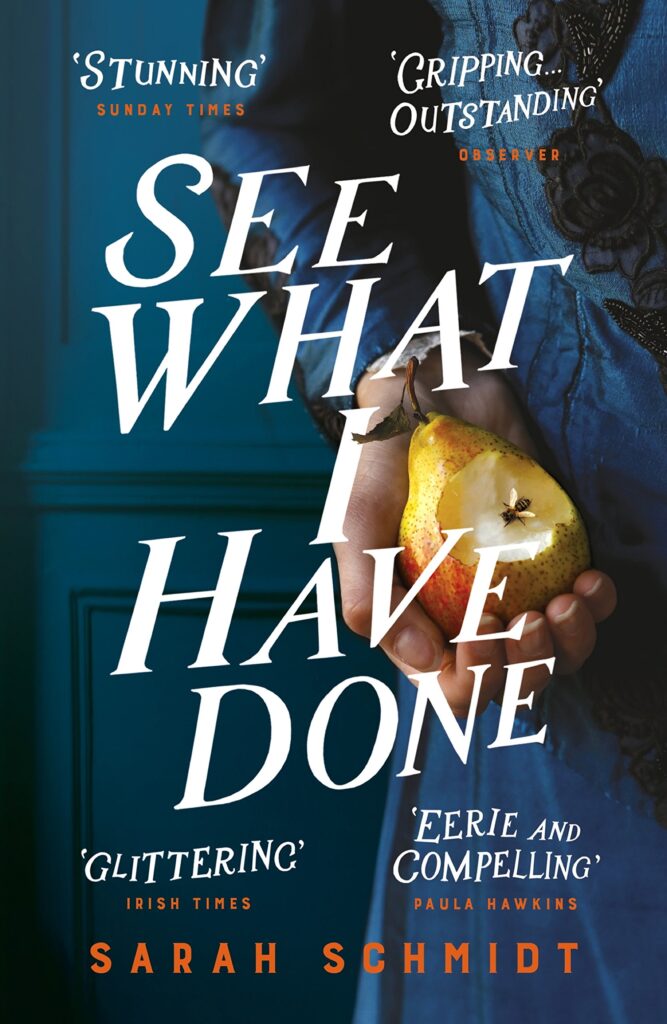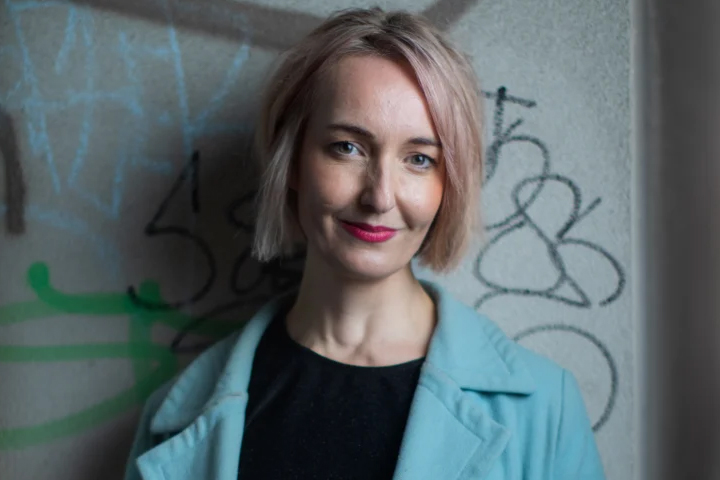From the Women’s Prize Archives.
The brilliant Sarah Schmidt has been longlisted for the 2018 Women’s Prize for Fiction for See What I Have Done. Read on to find out about a very creepy research experience, why Sarah’s first drafts felt like creative failures and why the story of Lizzie Borden will never truly leave her.
How did you become so fascinated by Lizzie Borden’s case?
I came across this case by pure chance while I was in a second-hand bookstore in 2005. I was in the true crime section reaching for a book when a pamphlet tucked behind it fell at my feet. It was about the Borden case. I quickly read through it and wasn’t interested in the story about the crime or the trail whatsoever so I put the pamphlet back and went home. Later that night I had a dream about Lizzie: she was sitting at the end of my bed poking my legs. She said, ‘I have something t tell you about my father. He has a lot to answer for.’ It was one of the most creepiest, vivid dreams I’d ever had. I ignored her however I had the same dream every night for a week. That’s when I decided to write down the dream in the hopes it would stop and as soon as I started writing, Lizzie’s voice was strong in my ear. I kept writing. And that was the beginning of a novel I had no intention of writing.
Why did you decide to write the novel from several different perspectives?
In the beginning I intended to only write from Lizzie’s perspective yet I soon realised just how non-compliant and evasive she was as a narrator. She was never going to tell me the truth and I knew I needed someone else to help tell the story. That’s when I decided to bring Benjamin into the narrative. From that moment on the novel became molasses; a slow trickle of movement and shifting perspectives. Narrators came to me when the narrative needed them and I played around with those voices and stories until they felt right. By doing this I was able to really tease out the themes and ideas I wanted to explore. For me this book isn’t about an infamous murder: it’s about a family that no longer knew how to love each other and I used that as a guide to form the ever changing narrative.
Having said all that, I had absolutely no idea how to write this novel and it often felt like a series of creative failures every time I finished a draft. I would also become infuriated with a narrator and so when that happened, I’d just switch to someone else until I became tired of them too.

You spent a couple of nights in the Borden household in Massachusetts as research for the book, what was this experience like?
It was one of the most intense, creepiest, surreal experiences I’ve ever had. It was also exactly what the book needed. It was like stepping back in time because the house is modelled after the crime scene photos. To be in that house was to be inside the flesh of the Borden family, all those textures of living within those walls really began to sink into me as I took my notes and spoke to the employees of the house. It really helped me further develop the mood of the novel.
The other guests staying at the house also made the experience fun. People from all over the world go to stay there and I am utterly fascinated by those who are drawn to these types of places. I always felt like I had an excuse (I was trying to write a book after all) but in hindsight I was probably weird in their eyes too. And fair enough.
You wrote the novel over 11 years, whilst holding down a job as a librarian. Was it difficult to juggle the book with ‘real life’, especially considering the intense subject matter?
The reason the novel took so long to write was because I could only ever do it part time: I was always working or studying. Roughly five years or so into writing See What I Have Done I had a child and then decided to study to become a librarian when she was eight weeks old. Life was bloody hectic for a few years while I tried to juggle work, study, looking after my young daughter and writing the book however I’ve never considered that period of time as more ‘exceptional’ than anyone else’s experiences. Women do this all the time. We constantly juggle, constantly work toward the next thing no matter what that might be. Some things just take more time than others but somehow we get there. I often woke up at 5 am to write for an hour before I got ready for work. I wrote when I could and had to be ok with that. And I constantly asked for help when I needed it.
I never thought the subject matter effected me much but even saying this now I know deep down it did. Writing this book did something to me that I’ve never been able to completely articulate. I lived with this story every single day, dreamt about it almost every night. That’s not something that easily leaves you when you’re done with the writing.
What are you working on next?
I’m currently working on my second novel. A few years ago I had a dream about a woman driving toward the Blue Mountains with a decomposing child in the backseat of her car. When I woke up I knew I needed to work with that image. The novel has gone in so many different directions since that initial idea but it’s essentially a story about a family struggling to move on from the past. It also features a lot of dead birds.








